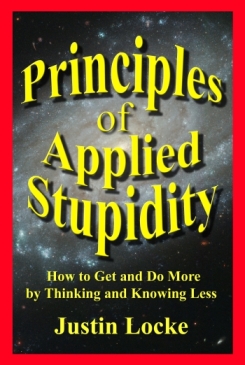You have probably, at one time or another, encountered individuals with unique powers of perception.
People’s perceptual abilities are often just as unique as their fingerprints. Just to give you one example, I have a sister who has perfect pitch. But her listening abilities go way beyond that. I once tested her ear by playing 17 random dissonant pitches all at once on a piano (by tangling up my fingers and playing a few with my chin). She calmly rattled off the name of every single note I was playing, and what was even more astonishing was the look on her face, which was one of, “why are you bothering me with something that’s so easy to do?”
I can claim to have one useful inborn perceptual ability: I have an awareness of ingredients. I may have inherited this from my grandmother. She cooked constantly, yet I never once saw her use a measuring cup or a tablespoon. She referred to it as her “guess and by gosh method.”
My musical sister once asked me to teach her how to cook something. At one point, I said “You just put this in until it feels right.” She just looked at me with a blank stare. She lacked this kind of perception.
I could go on and on about people who have extraordinary powers of perception in very specific areas of the broad spectrum of existence, and others who lack it. For example, I am completely blind when it comes to picking out clothes. I always have to take people with me to tell me what matches what. To them, it’s obvious and simple. To me, I just don’t get it. They will tell me, “this goes really well with that.” When I ask them, “why?”, they don’t understand the question. They have difficulty perceiving the concept that someone else can’t see what they see.
And that brings me to the point of this post: A great deal of the natural variations in human perceptions tend to get lost or wasted.
Instead of developing unique powers of perception, a great deal of what we learn in school is how to match and fit into the “common” perceptions. If you see something in an English Lit short story or a science class chemistry experiment that no one else saw, and if you then express this openly, most of the time you will suffer being laughed at. What makes sense to you, what you easily perceive, to others often sounds like nonsense. So we learn quickly to suppress expression of our unique perceptions.
A big part of (re-) becoming who you uniquely are is more than just "what you can do." It's also about revisiting and “re-honoring” your unique perceptual abilities.
Because we tend to be taught that everyone’s perceptions are (or should be) the same, and variations in perceptual ability are somehow shameful and/or embarrassing, we tend not to act on opportunities that are available only to us.
Just to give you one example, when I wrote “Real Men Don’t Rehearse,” this was read by at least five literary agents. Every single one of them said the exact same thing: “Justin, this is a very funny book, but we do not see a market for a book about a bass player.”
It took me the longest time to realize that I could perceive a market opportunity (i.e., something like six million rabid classical music fans with absolutely nothing to read) where the “experts” could not. Their expertise was in knowing the collective perception, not in seeing a unique opportunity in a niche market outside the norm.
I often hear people talking about an idea or a marketing opportunity that, to them, is just plain as day. But because they’re the only ones who can see it, they are actually ashamed of it, and they are afraid to act on it for fear of being laughed at for their unique perceptual ability. When we see an unusual business opportunity, the fact that no one else
"sees" it makes us doubt our own perceptions. We think it's a crazy,
or worse, stupid, idea. Breaks my heart.
I am reading a book about the Wright brothers. After they had successfully flown a heavier than air aircraft, it was 3 years before the general public was able to actually perceive it, as they had to peel back the common perception that flying was impossible. Those two high school dropouts in a bicycle shop in Dayton could perceive the possibility, so they won the race.
Believe it or not, right now, I will bet there is something in your environment that is just plain as the nose on your face to you, that people all around you cannot see. It’s a little bit like finding a five dollar bill lying on the sidewalk on a busy street. It amazes me that other people will walk right by and not even see it. But they don’t.

You can perceive things that other people cannot, and that includes an opportunity that is available to you right now– one that no one else can see. I wish I was enough of a guru to tell you what it is, but why limit yourself to what I can see? Compared to my sister, I am tone deaf, and right now I’m wearing a striped shirt with a polka dot vest and a paisley tie. Yes, I am a great expert at what I can see, but I’ll bet there’s all kinds of stuff you can see that I can’t. Embrace your inner idiot, risk the laughter of those who have eyes but see not, and grab that opportunity.
© Justin Locke
